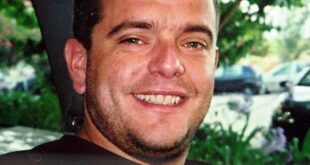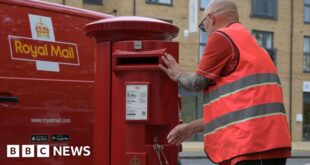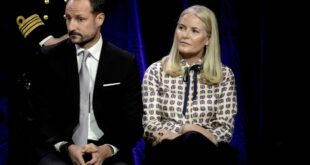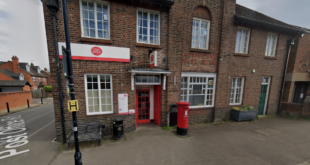news, world
The Duke and Duchess of Cambridge have arrived in Jamaica as part of a week-long Caribbean tour, hours after activists protested to demand reparations for slavery amid growing scrutiny of the British Empire’s colonial legacy. Prince William and his wife Kate arrived in Belize on Saturday to start the tour that coincides with Queen Elizabeth’s 70th year on the throne, and will conclude it over the weekend with a visit to The Bahamas. They were received by Jamaican foreign affairs minister Kamina Johnson-Smith and Defence Force Chief Antonette Wemyss Gorman at Kingston’s Norman Manley airport. They then left to meet Governor-General Patrick Allen, who represents the British crown in Jamaica. Earlier, dozens of people gathered outside the British High Commission in Kingston, singing traditional Rastafarian songs and holding banners with the phrase “seh yuh sorry” – a local patois phrase that urged Britain to apologise. “There are historical wrongs and they need to be addressed,” Dr Rosalea Hamilton, an economist and activist who helped organise the rally where demonstrators read out 60 reasons for reparations, said. Jamaica celebrates 60 years of independence in August. “Part of the conversation is how we begin a new dispensation and (discussion) of actions for the new generation,” she said. The royal visits to Caribbean nations are seen as an effort to convince other former British colonies – including Belize and The Bahamas – to stay on as “realms” of the British monarchy amid a rising regional movement towards republicanism. One Jamaican judge, Hugh Small, this month burned his ceremonial British judicial wigs in symbolic protest that a London-based tribunal called Privy Council continues to be Jamaica’s highest court of appeal. William and Kate had to change their itinerary in Belize following a protest by indigenous villagers upset that the couple’s helicopter was given permission to land on a soccer field without prior consultation. Marlene Malahoo Forte, who was Jamaica’s attorney-general until January, in December told the Jamaica Observer newspaper she had received instructions from Prime Minister Andrew Holness to reform the constitution to become a republic. That process would require a referendum, making it more complicated than in smaller Barbados – which was able to make the change via an act of parliament. The government last year announced plans to ask Britain for compensation for forcibly transporting an estimated 600,000 Africans to work on sugar cane and banana plantations that created fortunes for British slave holders. Jamaica lawmaker Mike Henry has proposed a reparations package of Stg 7.6 billion ($A13 billion). He has said the figure is derived from a Stg 20 million payment Britain’s government made in 1837 to compensate slave owners in British colonies for the emancipation of enslaved people following the 1833 abolition of slavery. Australian Associated Press
/images/transform/v1/crop/frm/silverstone-feed-data/35c0a87e-567f-414c-8231-9af055f6a1d9.jpg/r0_74_800_526_w1200_h678_fmax.jpg
The Duke and Duchess of Cambridge have arrived in Jamaica as part of a week-long Caribbean tour, hours after activists protested to demand reparations for slavery amid growing scrutiny of the British Empire’s colonial legacy.
Prince William and his wife Kate arrived in Belize on Saturday to start the tour that coincides with Queen Elizabeth’s 70th year on the throne, and will conclude it over the weekend with a visit to The Bahamas.
They were received by Jamaican foreign affairs minister Kamina Johnson-Smith and Defence Force Chief Antonette Wemyss Gorman at Kingston’s Norman Manley airport.
They then left to meet Governor-General Patrick Allen, who represents the British crown in Jamaica.
Earlier, dozens of people gathered outside the British High Commission in Kingston, singing traditional Rastafarian songs and holding banners with the phrase “seh yuh sorry” – a local patois phrase that urged Britain to apologise.
“There are historical wrongs and they need to be addressed,” Dr Rosalea Hamilton, an economist and activist who helped organise the rally where demonstrators read out 60 reasons for reparations, said.
Jamaica celebrates 60 years of independence in August.
“Part of the conversation is how we begin a new dispensation and (discussion) of actions for the new generation,” she said.
The royal visits to Caribbean nations are seen as an effort to convince other former British colonies – including Belize and The Bahamas – to stay on as “realms” of the British monarchy amid a rising regional movement towards republicanism.
One Jamaican judge, Hugh Small, this month burned his ceremonial British judicial wigs in symbolic protest that a London-based tribunal called Privy Council continues to be Jamaica’s highest court of appeal.
William and Kate had to change their itinerary in Belize following a protest by indigenous villagers upset that the couple’s helicopter was given permission to land on a soccer field without prior consultation.
Marlene Malahoo Forte, who was Jamaica’s attorney-general until January, in December told the Jamaica Observer newspaper she had received instructions from Prime Minister Andrew Holness to reform the constitution to become a republic.
That process would require a referendum, making it more complicated than in smaller Barbados – which was able to make the change via an act of parliament.
The government last year announced plans to ask Britain for compensation for forcibly transporting an estimated 600,000 Africans to work on sugar cane and banana plantations that created fortunes for British slave holders.
Jamaica lawmaker Mike Henry has proposed a reparations package of Stg 7.6 billion ($A13 billion).
He has said the figure is derived from a Stg 20 million payment Britain’s government made in 1837 to compensate slave owners in British colonies for the emancipation of enslaved people following the 1833 abolition of slavery.
Australian Associated Press



